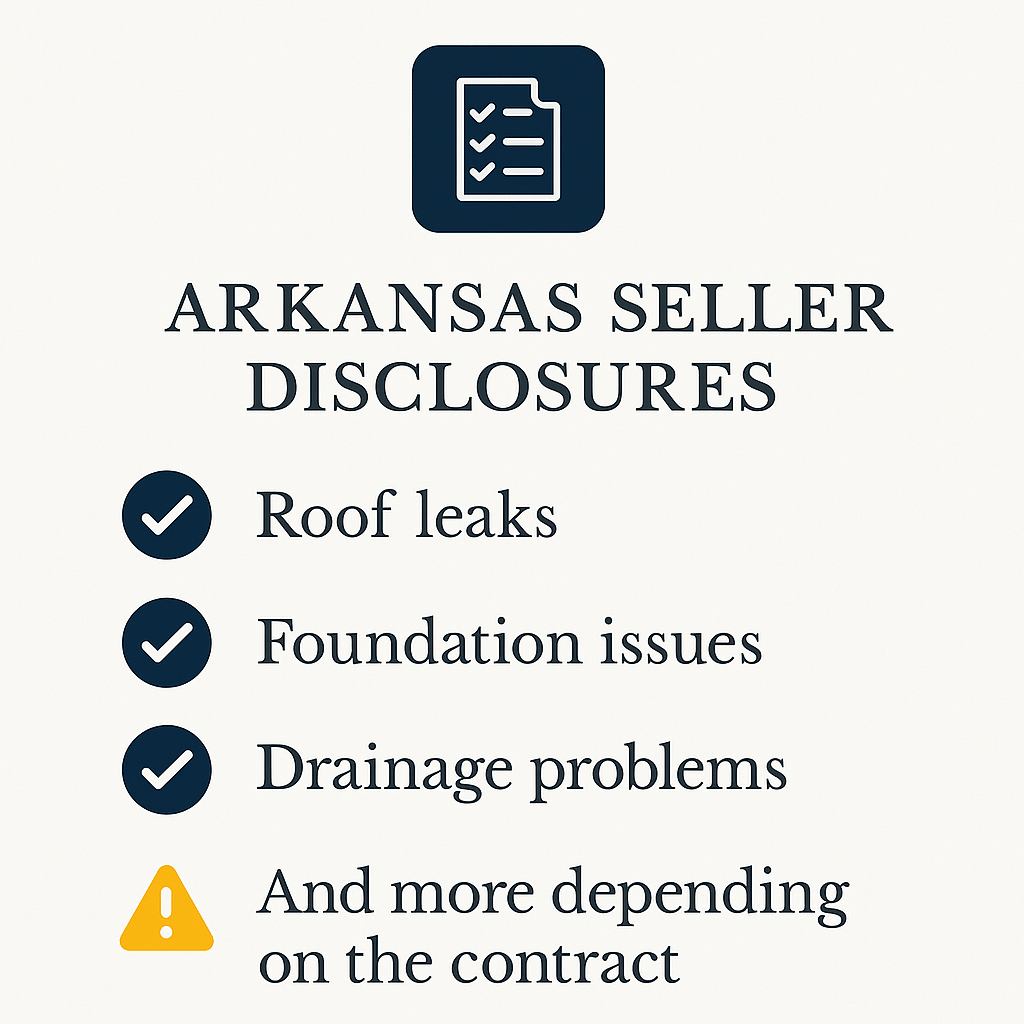
Main Line: 479.443.2705
Fax Line: 479.443.2718
Email: info@rmp.law
Bentonville – 479-553-9800
Jonesboro – 870-394-5200
Little Rock – 501-954-9000

Main Line: 479.443.2705
Fax Line: 479.443.2718
Email: info@rmp.law
Bentonville – 479-553-9800
Jonesboro – 870-394-5200
Little Rock – 501-954-9000
Selling a home in Arkansas? Get 5 key legal tips from RMP Law to avoid disputes, title issues, and closing delays. Close with confidence.
On Tuesday, the Federal Trade Commission issued a new Rule putting an end to employment-related non-compete clauses. In its justification for the rule, the FTC called non-compete clauses “an unfair method of competition” and stated it is a “violation for [employers] to… enter into non-compete clauses (“non-competes”) with workers.” In today’s very competitive labor market, the new FTC Rule creates a significant disruption for employers.
This new FTC provision—set to take effect in 120 days—renders existing non-compete agreements unenforceable. Existing non-compete agreements with senior executives will remain enforceable, although employers cannot require newly hired senior executives to sign such an agreement.
After the Rule takes effect, employers are required to deliver personal notice to employees (past and present) who signed a non-compete agreement informing them agreements are no longer enforceable. In the notice, employers must inform employees they are free to accept any job or start any business, even if it is directly competitive with the employer.
Compliance with the FTC Rule is not optional. Employers should consider new ways they can protect against a former employee gaining a competitive advantage by using the employer- provided training, the relationships made possible by the employer, or the confidential information learned from the employer. RMP can assist you in navigating this disruption and can provide advice on how to most effectively protect your vital business interests going forward.
RMP Attorneys At Law has an experienced Employment Law Attorney team dedicated to helping you navigate these changes. If you have any questions or would like guidance, reach out to one of our employment attorneys, Tim Hutchinson, Seth Haines, Larry McCredy, or Taylor Baltz or call 479.443.2705.

Selling a home isn’t just an important financial decision—it’s also a complex legal transaction. At RMP Law, our team of real estate lawyers have helped sellers across Arkansas protect themselves from costly disputes, surprises in their contracts, and last-minute closing issues. Whether you're selling your primary residence, a home you’ve inherited, or residential property you’ve held as an investment, there’s more at stake than just the sales price.
Here are five key legal tips from our team of experienced Arkansas real estate lawyers to help you close confidently and avoid common pitfalls.
In Arkansas, real estate agents representing sellers are generally required to disclose known material defects about the property. This includes things like roof leaks, foundation problems, drainage issues, past flooding, and other facts that are material to the value or desirability of the property. Apart from the agent’s duty, each seller’s disclosure obligations may be different depending on the specific terms of the contract, the questions asked by the buyer, and several other factors.
Why this matters:
Failure to satisfy your disclosure obligations can open you up to lawsuits even after the sale, including claims of fraud or misrepresentation. As real estate lawyers, we’ve handled post-closing claims that could’ve been avoided had the seller fully appreciated their disclosure obligations.
Tip: If you’re unsure whether something needs to be disclosed or what your disclosure obligations are generally, speak to a real estate lawyer early in the sales process for guidance.

Title issues are one of the biggest causes of delayed or failed closings. Common problems include old liens, unresolved mortgages, boundary disputes, and inherited property without a clear title.
At RMP Law, we often help sellers run a preliminary title check so they can resolve problems proactively, not while the buyer is waiting.
Tip: If you’ve owned the property for a long time, or if it passed to you through family or probate, speak to an Arkansas real estate lawyer early in the process.
Selling a home “as-is” can simplify things, but it doesn’t completely shield you from liability. You may still have certain disclosure obligations depending on the terms of your contract, and the buyer may still negotiate based on inspection findings.
What “as-is” does:
What it doesn’t do:
We recommend working with a real estate lawyer to ensure your “as-is” language is strong and enforceable—and that you understand your obligations under this language—to help avoid exposure to future claims.

Main RMP Number: 479-443-2705
Bentonville – 479-553-9800
Jonesboro – 870-394-5200
Little Rock – 501-954-9000
In real estate transactions, often only what's written counts. It’s common for sellers to make handshake agreements during negotiations—maybe about including appliances, handling minor repairs, or extending a move-out date. This is especially common in deals between family or friends.
Why it matters:
If a term you’ve agreed to is not in the contract, it may not be enforceable. Worse, it could be misinterpreted later. In either case, the failure to formally document the terms of your agreement in writing can easily lead to costly and time-consuming disputes that delay the sale of your property.
At RMP Law, we help sellers clarify the terms of their deals in writing so that expectations are clear and surprises are avoided.

Real estate agents play an important role in marketing properties and negotiating the terms of a deal, but they are not licensed to give legal advice. That’s where your real estate lawyer comes in.
What RMP Law provides that your agent can’t:
Working with a trusted Arkansas real estate lawyer ensures that your legal risks are adequately addressed and your transaction stays on track.
Selling a home in Arkansas isn’t just about finding a buyer—it’s about protecting yourself legally, both during and after the sale. At RMP Law, our team of real estate lawyers helps sellers avoid surprises, reduce liability, and close with confidence.
Whether you’re selling your family home, a rental property, or a house you’ve inherited, we’re here to make sure the process is smooth and legally sound.

Main RMP Number: 479-443-2705

DISCLAIMER: The information provided on this website does not constitute legal advice. Instead, all information, content, and materials available on this site are for general informational purposes. Information on this website may not constitute the most up-to-date legal or other information. Readers of this website should contact their attorney to obtain advice with respect to any particular legal matter.

Selling a home isn’t just an important financial decision—it’s also a complex legal transaction. At RMP Law, our team of real estate lawyers have helped sellers across Arkansas protect themselves from costly disputes, surprises in their contracts, and last-minute closing issues. Whether you're selling your primary residence, a home you’ve inherited, or residential property you’ve held as an investment, there’s more at stake than just the sales price.
Here are five key legal tips from our team of experienced Arkansas real estate lawyers to help you close confidently and avoid common pitfalls.
In Arkansas, real estate agents representing sellers are generally required to disclose known material defects about the property. This includes things like roof leaks, foundation problems, drainage issues, past flooding, and other facts that are material to the value or desirability of the property. Apart from the agent’s duty, each seller’s disclosure obligations may be different depending on the specific terms of the contract, the questions asked by the buyer, and several other factors.
Why this matters:
Failure to satisfy your disclosure obligations can open you up to lawsuits even after the sale, including claims of fraud or misrepresentation. As real estate lawyers, we’ve handled post-closing claims that could’ve been avoided had the seller fully appreciated their disclosure obligations.
Tip: If you’re unsure whether something needs to be disclosed or what your disclosure obligations are generally, speak to a real estate lawyer early in the sales process for guidance.

Title issues are one of the biggest causes of delayed or failed closings. Common problems include old liens, unresolved mortgages, boundary disputes, and inherited property without a clear title.
At RMP Law, we often help sellers run a preliminary title check so they can resolve problems proactively, not while the buyer is waiting.
Tip: If you’ve owned the property for a long time, or if it passed to you through family or probate, speak to an Arkansas real estate lawyer early in the process.
Selling a home “as-is” can simplify things, but it doesn’t completely shield you from liability. You may still have certain disclosure obligations depending on the terms of your contract, and the buyer may still negotiate based on inspection findings.
What “as-is” does:
What it doesn’t do:
We recommend working with a real estate lawyer to ensure your “as-is” language is strong and enforceable—and that you understand your obligations under this language—to help avoid exposure to future claims.

Main RMP Number: 479-443-2705
Bentonville – 479-553-9800
Jonesboro – 870-394-5200
Little Rock – 501-954-9000
In real estate transactions, often only what's written counts. It’s common for sellers to make handshake agreements during negotiations—maybe about including appliances, handling minor repairs, or extending a move-out date. This is especially common in deals between family or friends.
Why it matters:
If a term you’ve agreed to is not in the contract, it may not be enforceable. Worse, it could be misinterpreted later. In either case, the failure to formally document the terms of your agreement in writing can easily lead to costly and time-consuming disputes that delay the sale of your property.
At RMP Law, we help sellers clarify the terms of their deals in writing so that expectations are clear and surprises are avoided.

Real estate agents play an important role in marketing properties and negotiating the terms of a deal, but they are not licensed to give legal advice. That’s where your real estate lawyer comes in.
What RMP Law provides that your agent can’t:
Working with a trusted Arkansas real estate lawyer ensures that your legal risks are adequately addressed and your transaction stays on track.
Selling a home in Arkansas isn’t just about finding a buyer—it’s about protecting yourself legally, both during and after the sale. At RMP Law, our team of real estate lawyers helps sellers avoid surprises, reduce liability, and close with confidence.
Whether you’re selling your family home, a rental property, or a house you’ve inherited, we’re here to make sure the process is smooth and legally sound.

Main RMP Number: 479-443-2705

DISCLAIMER: The information provided on this website does not constitute legal advice. Instead, all information, content, and materials available on this site are for general informational purposes. Information on this website may not constitute the most up-to-date legal or other information. Readers of this website should contact their attorney to obtain advice with respect to any particular legal matter.
Main Line: 479.443.2705
Fax Line: 479.443.2718
Email: info@rmp.law
Bentonville – 479-553-9800
Jonesboro – 870-394-5200
Little Rock – 501-954-9000
JOHNSON
5519 Hackett Street, Suite 300
Springdale, AR 72762
BENTONVILLE
809 SW A Street, Suite 105
Bentonville, AR 72712
JONESBORO
710 Windover Road, Suite B
Jonesboro, AR 72401
LITTLE ROCK
17901 Chenal Parkway, Suite 200
Little Rock, AR 72223